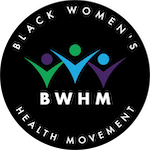November is Movember
Caring and Loving Our Men with Health Facts
Our men die far too young. In fact, their lifespans are 5 years shorter than women’s on average, according to the Centers for Disease Control and Prevention (CDC). Race, economics, mental health and trust play a role in this medical gender gap. Each of those reasons can lead men to avoid seeking regular medical care; however, there is something uniquely intrinsic to the health disparities of Black men, which is directly related to racism. Because of it, men fail to get checkups and health screenings to detect illnesses and disease before they progress — resulting in our fathers, partners, brothers, sons and friends dying far before their time.
This Movember — the time of year set aside to encourage men to discuss issues around their health and ultimately reduce preventable deaths — we, as Black women, are reminded to help the men in our lives face their health issues as we are also focusing more on our own. Each day we delay encouraging them to care for their health is too costly to justify remaining silent. Therefore, if we stay informed about men’s health issues, we can help educate them on wellness and urge them to seek medical care.
Leading Health Issues for Men & How to Address Them
Men’s biggest health issues include:
- Heart and lung disease
- Liver, prostate and testicular cancers
- Diabetes
- STDs
- Mental health and suicide prevention

Heart Disease
According to the latest reports from the CDC, heart disease is still the leading cause of death in men. Some contributing factors are hypertension, obesity, cigarette smoking and alcohol abuse. Men can minimize their risk by taking the following heart-healthy steps:
- Eating a balanced diet that includes a fair share of fruit and vegetables, especially raw
- Attend regular checkups and screenings for blood pressure and cholesterol
- Take prescribed medication
- Quit unhealthy habits like smoking and reduce alcohol consumption
- Reduce stress
- Stay active
Cancer
The CDC reports that cancer is the second leading cause of death for men. Skin, prostate, colorectal and lung cancer are all common in men. Living a healthy lifestyle, using sunscreen, limiting/removing processed food and red meat from diets, and not smoking can significantly reduce the risk of many cancers.
Diabetes
A significant risk for men, diabetes can significantly be minimized with prediabetes risk tests, weight management and exercise. Take this prediabetes risk test from the CDC to get started.

Respiratory Health
According to the American Lung Association (ALA), a seemingly innocent “smoker’s cough,” can be an early sign of lung cancer, emphysema, or COPD. ALA further states that more men are diagnosed with lung cancer each year, and African American men have a higher risk of dying from the disease compared to other racial or ethnic groups.
As cigarette smoke continues to be the leading cause of lung cancer, men who have smoked for more than 30 years can benefit from a low-dose CT scan to screen for lung cancer to help catch it early when it’s more treatable.
Sexual Health
Erectile dysfunction is a common issue that men face that can be remedied by limiting alcohol and quitting smoking. However, it can also be a sign of other health issues, like diabetes or high blood pressure, that require medical intervention.
Sexually transmitted diseases (STDs) are a common problem. The most prevalent, human papillomavirus (HPV), can develop as penile cancer or genital warts. HPV vaccines help prevent infection and are available for people younger than 26 years old. Condoms are also a great defense against most STDs.
Mental Health
Depression and mental illness often go unchecked by a majority of men — leaving them undiagnosed. Rather than experiencing sadness or unresponsiveness, depression can come out as anger or irritability. If you suspect a man in your life could be depressed, encourage them to seek medical attention immediately as suicide rates among men are on the rise.
COVID-19
Men who have contracted COVID-19 are at a higher risk for dying. Encouraging them to get the vaccine may prevent the risk of infection, hospitalization, or even death. Visit our COVID-19 Community Resources site for more information and helpful resources.
The Specific Risks of Excessive Alcohol Consumption
Alcohol abuse is a major factor contributing to men’s health issues, and it affects all socioeconomic levels. In fact, it tends to be more common among households with incomes of $75,000 or more and those with higher education.
The latest report from the CDC states that men are:
- Almost 2 times more likely to binge drink than women. Binge drinking is likely the cause of hospital-related experiences resulting in approximately 68,000 deaths each year.
- Men are 3 times more likely to commit suicide — with more often those suicides are proceeded by alcohol.
- Alcohol increases the risk of cancer of the mouth, throat, esophagus, liver, and colon, which are more common among men. It also increases the risk of prostate cancer.
- Excessive alcohol use may impede testicular function and male hormone production resulting in erectile dysfunction and infertility. It may also increase engaging in risky sexual activity, which can increase the risk of sexually transmitted infections.

Helping Each Other Build a Healthier Future
As Black women who already have a lot of pressure dealing with our own health constraints, adding in having to worry about men’s health issues too can be overwhelming. However, there is good news. Many of the things women must do to remain healthy are the same things men need to do for their wellbeing.
Encouraging the men in your life to engage with any of the many organizations that support their issues is a great starting point. The available resources out there are as diverse as they are vital, and they span everything from local health programs to groundbreaking international collaborative research organizations and everything in between.
Most importantly, supporting our men requires that we let them know how much we care about and love them. Make sure they know that we understand the difficult issues they face. Emphasize that it’s okay to not be okay while reassuring them that we’re here to support them. Remind them of their importance to their loved ones and to the community.
Further reading:
https://us.movember.com/#
http://blackmenshealthproject.org/
https://www.healthline.com/health/top-10-health-risks-for-men#respiratory-diseases
https://blog.mission-health.org/2021/06/16/8-common-mens-health-issues-to-watch-out-for/
https://www.cdc.gov/nchs/fastats/mens-health.htm
https://www.cdc.gov/nchs/fastats/mens-health.htm


